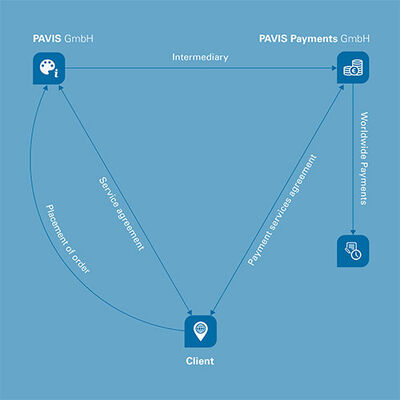Depending on the client legal entity, a verification of the appearing person by Postident or Video-Ident verification process may be required.
1. Identification via Video-Ident:
This is done online. A Deutsche Post employee will personally guide you through the Video-Ident process. You will need a stable internet connection and a webcam (smartphone, PC, tablet, etc.). The person to be identified must be visible and hold the ID card (front and back) or passport in the camera so that all security features are visible. You will also receive a security code or TAN by SMS or email. You need to enter this at the end of the process to successfully confirm your identity.
2. Verification via Postident:
PAVIS sends a Postident coupon to the client, which needs to be presented together with a valid identity card at a Deutsche Post branch. Alternatively, a passport can be used in combination with a confirmation of residence from the local authorities (Ordnungsamt). For foreign citizens, the passport should contain information on their place of residence. After a Deutsche Post employee has successfully completed the identity check, he or she will forward the information to PAVIS. The identification itself takes only a few minutes and is of course free of charge for PAVIS customers.
3. Personal identification:
An employee of PAVIS Payments GmbH will identify you personally using your ID card at our business premises in Starnberg.


